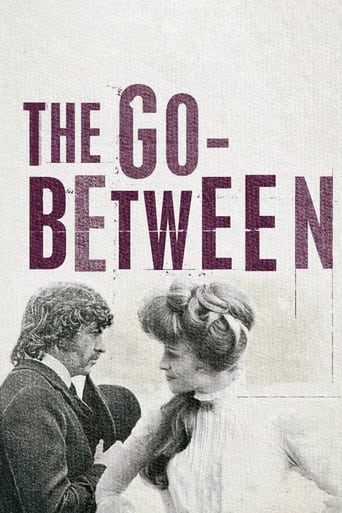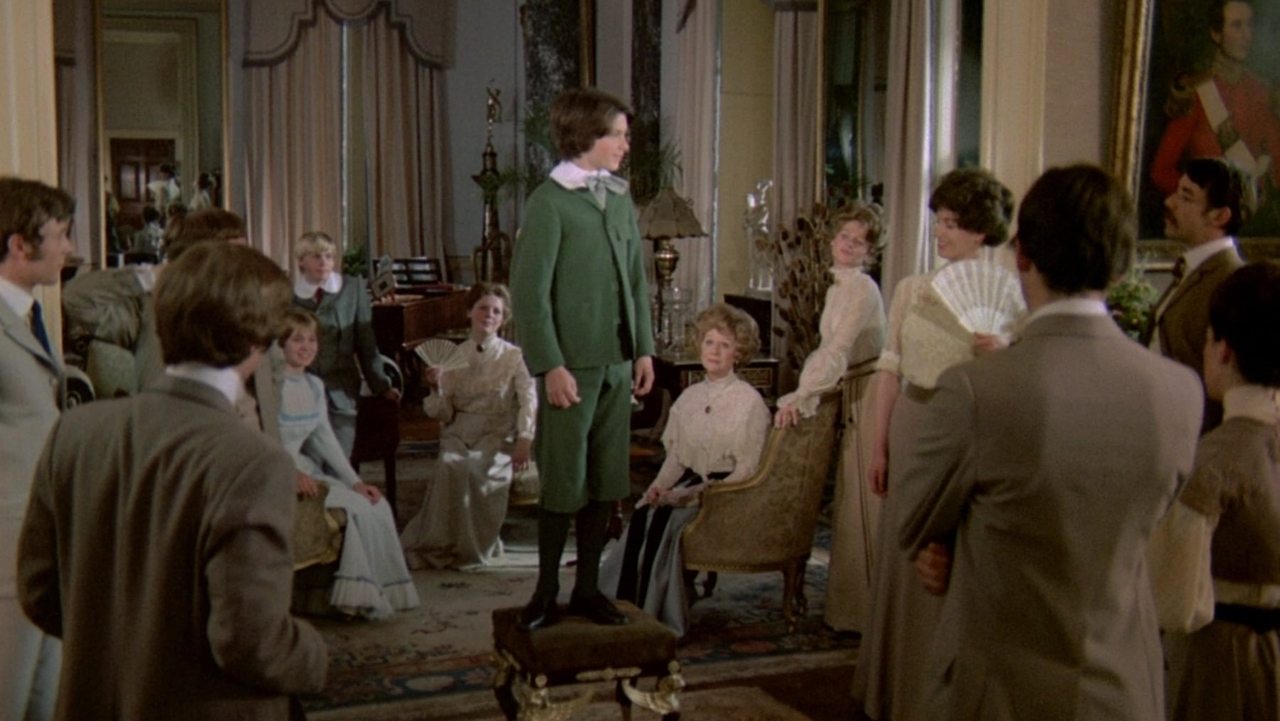jhseeker
I am amazed at the positive reviews of this film! I was really shocked by the way it seems to have been thrown together.The first jarring presence is the theme by Michel Legrand, whose score though being enigmatic is completely out of place and mismatched to the country home setting, it sounds like a spy theme and is reminiscent of the era's John Barry/Iprcress File. This main theme is irritatingly repeated over and over at the expense of badly needed expository dialogue. Where is the dialogue? The great Harold Pinter must've taken all of an afternoon to write it all - a pitiable effort for such a great book. We are instead treated to endlessly repeated shots of Leo running back and forth through he fields in long shot. Joseph Losey has used no supporting players, opting instead to use what looks like Norfolk locals (why?) who are hopeless in delivering the simplest of lines and so are in many cases, dubbed. There is no atmosphere! The actors don't inhabit the house at all- the sound and lighting is terrible! Unfortunately the bulk of the story requires child actors, Leo just about gets away with it but the actor playing Marcus is awful, many scenes are botched and left in the edit I can only assume they ran out of time. The big scenes of cricket match and party after, so important to the story are completely ruined by terrible editing. Why is Leo's song not more imaginatively realised? It would have helped the story so much. Also Trimingham is meant to be repulsive, making him handsome kills one of the most powerful motivations for Marian's behaviour. The major cast are good but lack direction and a decent script they loo lost half the time! Honestly, I could go on I am so disappointed in this treatment of an amazing book which everyone should read (hopefully they haven't seen this first). And yes, please, someone do a remake! Even Michael Bay could do it better.
kastellos
This is one of the least interesting films I have ever seen. Its high rating on IMDb is clearly due to the "Halo Effect" of Pinter and Losey.I love the cast: Bates, Christie, Leighton and Redgrave, but the material they are given is, to me, simply worthless. The story holds no one's interest because the characters are not at all interesting. It is impossible to either sympathize with, or hate, them. They are amazingly uninteresting. Redgrave is wasted. The young man who plays Marcus is not a very good actor and is most annoying. The plot is relatively predictable and it does not even have a Jane Austin happy ending. Moreover the cinematography, at least as seen on TV, appears grainy and sub-standard. You are much better off seeing "Far From the Madding Crowd," not a great film, but much better than "The Go-Between."The only reason I gave it a 2 instead of a 1 is because Christie and Bates look so good and I enjoyed hating the bourgeois attitudes of the family.
moonspinner55
In the early 1900s, a 12-year-old boy staying with his school-friend and his friend's family in the English countryside for the summer becomes indirectly involved in the clandestine affair between a privileged young woman and a lusty, low-class farmer. Harboring a crush on his friend's older sister, the lad is at first anxious to be her messenger, but his feelings soon sour once he realizes he's being used--as is the woman's rich, stuffy intended--in a game of love-play which he does not altogether understand. Harold Pinter's adaptation of the novel by L.P. Hartley smartly concentrates on the boy's perception of the events, although the flash-forwards in time (which culminate in an obtuse epilogue) fall rather flat. Joseph Losey directs in a clear, concise manner without too much dawdling about, building up the tension in the household with precision. Disapproving family matriarch Margaret Leighton, who sees the world through slanted, jaded eyes, has a terrifically charged moment late in the movie where she confronts the child over a letter in his pocket, and young Dominic Guard is excellent as well. The star-crossed lovers, Julie Christie and Alan Bates, have far less to work with (surprisingly), but do have superlative moments. The unvarying score by Michel Legrand becomes monotonous before long, and the production design and cinematography are disappointing, though the film has a quiet power that is unsettling. **1/2 from ****
jc-osms
The source novel, (obviously inspired by Lawrence's more carnal "Lady Chatterley's Lover") I had read a year or so ago on holiday and thoroughly enjoyed so it was with much anticipation that I settled down at last to watch this celebrated adaptation by American exile Joseph Losey, with its top-notch British cast. I wasn't disappointed. To the best of my recollection, the film is very true to the novel, only slightly modifying the epilogue-type ending by introducing the years-later reunion of Marion and Leo in teasingly inserted sequences which initially might confuse the casual viewer. The main theme of the movie, to my mind is the corruption of innocence as the adults in the world of naive young outsider Leo, take advantage of his susceptibility and willingness to please, not to mention his pubescent fascination with physical love, to use him as an unwitting pawn in their adult games of deception and lust. Thus we learn at the conclusion that Leo has never married or, even, by inference, enjoyed any kind of natural relationship with a woman, thus is his trust and innocence abused for all time.The film of course also comments tellingly on snobbery, class division and heroism in between-the-wars England but in the end its most important facet is the interplay of the four main characters, Marion, Ted Burgess, Lord Trillingham and of course young Leo, as the film moves inexorably towards its predictably tragic ending. The acting is generally very good, especially the main female parts played by Julie Christie and Margaret Leighton as errant daughter and suspicious mother respectively. The male acting I was slightly less enamoured of, Alan Bates failing to me to really suggest the rough physicality which draws Marion away from the safe, arranged, matrimonial match offered by the affable jolly good chap, Lord Trillingham, well played by a young Edward Fox. The young actor playing Leo, acts his part very well although the scenes with his young school-friend, Marion's younger brother, are a bit strained and accordingly unconvincing. The direction I found largely well-paced, although one or two short interludes seemed unnecessary in the editing and occasionally the frightfully, frightfully accents of the cast grated somewhat. Harold Pinter's screenplay stays properly close to its source and is less noticeably Pinter-ian than I would have expected, not too many characteristic pregnant pauses or repetitions. The climax (sorry, no pun intended) in the barn was effectively led up to and delivered. I did however find the music by Michel Legrand lacked a little subtlety, out of kilter with the delicate emotions on display here and also lacking the required pastoral touch. On the whole though this was a rewarding and entrancing movie, as good a classic book adaptation as you could hope to see and probably a precursor of Merchant-Ivory's success later in the decade.



 AD
AD




